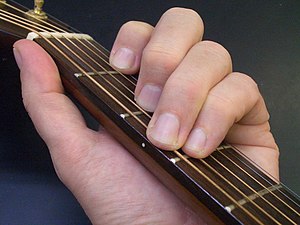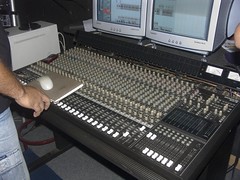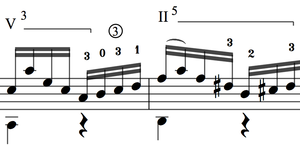© I.Woloshen
What is an open mic? For those of you who don’t know the term, it is an event usually held at a bar or a coffeehouse where songwriters or performers take turns going up, sometimes on a stage, sometimes just a riser, and playing a short set of songs. Occasionally, open mics are a mixture of songs and poetry and/or readings. Sometimes there is a microphone, but occasionally it is also acoustic (no mics or amplifiers, etc.) Some are weekly events, others monthly or only occasionally. They are usually “hosted”, meaning that there is someone there to introduce each performer. If you have never been to one, just go to one one evening to see how it works first before putting yourself under the stress! Even if you don’t want to be a performing songwriter, you may find yourself someday sitting nervously in the audience of an open mic event, holding your guitar in your sweaty hands, waiting for your turn 🙂
First of all, why do an open mic if you’re not a performer? Why, to expose your songs, of course! Other than creating a demo tape, which can be expensive, the easiest way to get immediate feedback on your songs is by playing them for somebody. If you want to put them out there with the “best”, this is one small step to taking you there.
I have been to and played at many open mics, and I’m still more nervous at an open mic than at one of my performances! Why? Because there is little time to relax and get in the groove when you’re only playing 1-3 songs, and because you are essentially competing with every other songwriter who gets up there to play. As supportive and as enthusiastic as we songwriters try to be with each other, we are still competing with each other for the same audience! PLUS, if you are playing in front of other songwriters, you KNOW you can’t get away with anything 🙂
I have written another article on performing tips (which you can find here), but in this particular article I want to discuss a few other things to think about.
WHICH SONGS TO PLAY? – If you are only allowed one song to play, this can be a tough one! My immediate response would be this: don’t make it a ballad! Why? Slow tempos are not always a good choice because the energy level of the performance can be so low key. Now, if you have a particularly KILLER ballad that you KNOW blows people away, this might be a different story! But for the most part, you are better off choosing an upbeat, or at least a faster song. Chances are, you’re going to play it the fastest that you ever have! That’s because you’ll be nervous and there will be a lot of adrenaline in your body! Better to play a fast song faster than a slow song too fast!
If you have a choice of two or three songs, make them all very different. This not only provides contrast in your performance, but it will show your diversity as a songwriter!
Something else to consider…depending on whoever plays before you, you might actually think of having a couple of songs to choose from as your first song (or only song!). You don’t want to sound like the songwriter who just played, you want to stand out! This actually might be a good time for your killer ballad…if the last three songwriters have all performed fast, upbeat songs, your ballad would be a wonderful contrast, and really make you stand out!
HOW LONG? – I don’t mean how long will you be playing, I mean, how long should your songs be? There is nothing worse than a 10 minute song at an open mic. I don’t care how much you like it, you will come across as self-indulgent and not caring about keeping your audience’s attention. Many open mics will give you 10 minutes, rather than giving you 3 songs. Don’t fill the whole 10 minutes with one song, pick three of your shortest, and come out under your ten minute limit! This will also engraciate you to the hosts of the evening…they just love it when somebody actually sticks to the rules or makes things easier for them!
ORDER OF PERFORMERS – This is a toughie…so much can depend on where you are in the list of performers. Many times you don’t have a choice, but if you do, I suggest sticking yourself somewhere in the middle your first time out. Playing first is just TOO nerve-wracking, and so is waiting to play last! In the middle, you have a chance to see what some of the others are doing, and then once you’ve done your set, you have a chance to relax enough to actually hear the rest!
However, if you are stuck with first, there are some positive things you can focus on. You can blow them away with your songs and give the rest of the songwriters something to live up to! If you are last, you can show them all that you were saving the best for last! Okay, I’m just pumping you up here…but that’s my job 🙂 Sometimes the size of the audience will vary extremely from the first to the last person up. Occasionally, everyone shows up at the beginning and then they slowly wander off as the evening progresses…but the opposite can happen too! Sometimes the audience kind of saunters in over the evening and the biggest numbers of people are at the end. You just never know! I have been in both situations…sometimes playing at the wrong end of the evening where there were the least people. There’s nothing you can do about that. It could be the venue, it could just be a fluke.
INVITING FRIENDS – Some people are more nervous if they are playing to people they know. If this is the way you are, don’t bring anybody! But there might be a comfort level in having people you know in the audience, a support group, if you will. You are guaranteed noisy, raucous applause for one thing! And they might be able to help keep you calm while you are waiting to play. Think about how you are with people…do you turn into a nasty jerk when you’re nervous, or just a sobbing misfit? 🙂
PREPARING YOURSELF – Your first time at an open mic should be thought of as a learning experience so don’t have too many expectations of yourself. There are a couple of things you should think about when you’re preparing to play your first open mic. First of all, it goes without saying…know your songs well! Choose the songs you are most comfortable with, not necessarily your newest.
Having said that, there is such a thing, I believe, as OVER-practicing. I say this for a couple of reasons. First of all, you will never be able to duplicate what you are going to feel like on a stage when you are in the comfort of your own home. You are likely going to make mistakes, no matter how hard you practise. It is good to practise enough to be able to recover from those mistakes, but sometimes there is an expectation that arrises with a LOT of practice. If you insist on practising the day of the open mic, do it early and then leave it alone. This is the second reason I say don’t over-practise…you want to feel “fresh” with the songs…sometimes knowing them too well affects the energy of your performance. Don’t believe me? Okay, try it your way 🙂
- If you’re playing guitar, put on new strings, but put them on the day before. This way they have a chance to stretch so they won’t go out of tune on you too quickly. And make SURE you are in tune! Don’t waste any time on stage tuning…this should all be done beforehand…it bores the heck out of your audience! Sometimes you’ll have a minute to tune at the venue before the open mic begins. This is ideal.
- Do you need to warm up your voice? Go into the bathroom and hum a little to yourself before the evening begins. Online tutoring sites like takelessons.com provide great resources for vocal warm-ups.
- Get to the place early. I always recommend this…if you are in too much of a rush, not only will you have to deal with adrenaline, but also a fast heart rate and a panicked state-of-mind (not to mention a few extra wet patches on your new shirt!). Give yourself lots of time to get used to the place, even go up on the stage if you can so you’re going to know what it’s going to look like “out there”.
- And lastly, in terms of preparation, forgive yourself in advance for your mistakes, because you’re likely going to make a couple. They may not be HUGE errors, but they will be the ones that will bug you, because you know what your songs is supposed to sound like! Remember that chances are nobody else does! This always helps me to get through my blunders. Until I get people who show up who know my songs REALLY WELL…then I know I’m in big trouble 🙂
OTHER PREPARATION – Be well-rested, don’t drink coffee beforehand (coffee will just make you more jittery than you already are), go to the bathroom, have a glass of water…okay, not necessarily in that order. While you’re sitting in the audience beforehand, do some deep breathing…take a slow breath in through the nose and quietly blow it out of your mouth. Focus on something that calms you. Wear clothes you are really comfortable in. I once wore a pair of jeans that were too tight, and when I had to sit on the stool, which had a shiny finish, I kept sliding off! This was so distracting, I almost messed up my entire set! So much for vanity!
WHEN IT’S YOUR TURN – I know you’re going to be nervous, almost everyone is to one extent or another, so it’s almost silly to say “enjoy yourself”, but I’m going to! The first time is just too much pressure to be all and to do everything right. But think of this: these are your wonderful songs!! Don’t you just love playing them and hearing them? Get into that state of mind if you can think of it, and it will help you to relax a little. Try to smile, don’t avoid eye contact with your audience if you can help it, and go for it!
As I said in the beginning, try not to have HUGE expectations of yourself on your first time out. The more open mics you attend, the more you will get used to what happens to you when you’re nervous, and you’ll be able to cope more effectively. Every time is different, every open mic another chance for people to hear your wonderful songs. You’ll be an open mic “pro” in no time! Good luck 🙂



![Reblog this post [with Zemanta]](http://img.zemanta.com/reblog_e.png?x-id=d522afc4-79a7-494b-baec-5f2878f10cfe)



![Reblog this post [with Zemanta]](http://img.zemanta.com/reblog_e.png?x-id=6926b91f-07a8-493b-bd9e-7cad49545ed4)

![Reblog this post [with Zemanta]](http://img.zemanta.com/reblog_e.png?x-id=2264e25e-aa09-4ee6-a8d9-212193f7bd42)